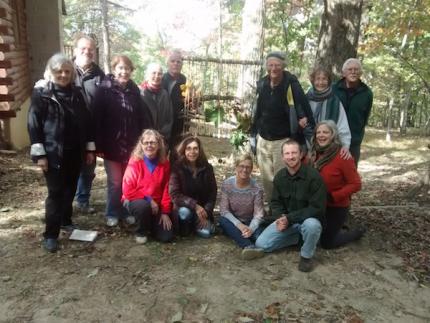
We men and women are all in the same boat, upon a stormy sea. We owe to each other a terrible and tragic loyalty. GK Chesterton
I have been thinking about this two-sentence quote. I saw it first in paraphrase form in an email from a friend. The paraphrase collapsed the “men and women” into the collective pronoun, “we”. It left out “and tragic”, and the preposition “to”, and made the whole quote one sentence, so that it became,
We are all in the same boat, upon a stormy sea, and we owe each other a terrible loyalty.
I was struck by it. When I read the quote in its original form, I was disappointed. The original seemed to have little of the snappy sound bite quality of the paraphrase. I was perplexed by the presence of the word “tragic,” which the dictionary defines as “characterized by extreme sorrow.”
Nevertheless, I gravitated to the quote. The image of a fragile craft on a perilous ocean carrying those bound by circumstance and commitment was compelling. GK Chesterton, that curmudgeonly Brit, was speaking to me across decades and cultures.
 Notably strong storms rarely find their way to our corner of West Virginia, but the elements can get fierce. Last weekend the wind was formidable, roaring through the forest, making the autumn trees dance madly in their gold and crimson finery. Some of us were outdoors, gathered in a circle for a retreat session, and we huddled close, both for warmth and so that we could hear one another speak above the din. It felt necessary to stand by one another in the unpredictable and ferocious wind.
Notably strong storms rarely find their way to our corner of West Virginia, but the elements can get fierce. Last weekend the wind was formidable, roaring through the forest, making the autumn trees dance madly in their gold and crimson finery. Some of us were outdoors, gathered in a circle for a retreat session, and we huddled close, both for warmth and so that we could hear one another speak above the din. It felt necessary to stand by one another in the unpredictable and ferocious wind.
We were gathered to explore what to do and how to behave in a time when things appear to be unraveling, when both personally and on many grander levels things feel risky and unsettled, “betwixt and between”. We seem to be in a “time of the interim” as John O’Donohue says, “Where everything seems withheld…The old is not old enough to have died away. The new is still too young to be born.”
As we huddled together, everything was in motion around us, stirred up by the relentless wind. The tree tops bent and swayed, bits of dirt and twigs and crumpled leaves whirled in tiny eddies at our feet, leaves gave up one by one in the branches and let go into the rushing air. In the midst of all that swirling surrender to the wind, our little group tightened and held.
It seems that life in the interim demands both holding tight and letting go, a continuous dance. I believe those layered requirements form the crux of love and grief and sorrow. Mary Oliver writes, “To live in this world you must be able to do three things: to love what is mortal; to hold it against your bones knowing your own life depends on it; and, when the time comes to let it go, to let it go.”
Tonight we are gathered for one more round of that dance. Outside it is autumn, the season of letting go. It is night, the moon is on the wane, the wind catches the leaves falling in the dark. Everything is turning inward to that place where we hold what we love and what will die tight against our bones. While we know that outside the wind passes over seeds that slumber hopefully in the ground, for now we dwell in sorrow.
Bob once called community a “terrible blessing”. As Chesterton may have described it, that terrible blessing is a boat, a container of grace that cradles us, the ones who loyally owe one another our love, our vulnerability, our gifts. We forge ahead into the wind in our blessed boat upon the stormy sea, heartened and bound as much by the sorrows we hold for one another as by the joys we share.